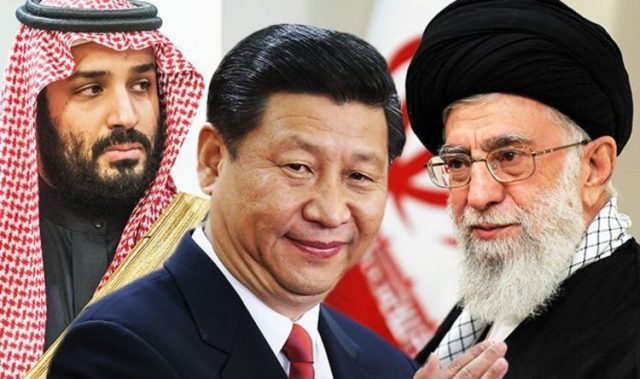News Analysis |
In a breakthrough move, Kingdom of Saudi Arabia has decided to allow an Iranian official in Riyadh to administer Iranian interest in Saudi Arabia. The diplomatic ties between the two countries are cut off since 2016 when a Shia cleric Sheikh Nimar Al Nimar was executed by Saudi Arabia on charges of “instigating unrest”.
The Iranian pilgrims did not even go to Hajj that particular year, a time when tensions were very high. Swiss embassy, which had offered to work as a channel to normalize the ties between both Iran and Saudi Arabia, will provide the logistical support for Iranian officer to establish the office at its building.
The understanding is quite simple actually; those countries who have an edge, be it the economy or military related, can talk about the internal affairs of other countries as the retaliation is least likely to be expected
Saudi Arabia is yet to respond comprehensively about the particular decision but on the other hand, it is being extensively reported in Iranian media. The two arch rivals share a history of animosity which is the reason why a step as trivial as this one is being hailed by people all over the world. In an interview published on the Iranian Foreign Ministry’s website, the ministry spokesman said there had been a “breakthrough” in relations between the two regional rivals.
“Up until two weeks ago, no visa had been issued for the names that we had submitted a long time ago,” spokesman Bahram Qasemi said. “But within the last week or two, there has been a breakthrough and I think there are indications that the office for the protection of interests will be opened,” he added.
Read more: Canada asks for help in Saudi dispute
In the context of the contemporary geopolitical scenario, both the countries are practically in a cold war stage over Syria and Yemen, to name the most significant of few regions. President Bashar Al Asad’s successful onslaught, with Russia and Iran’s assistance, against the American and Saudi backed rebels has allowed Iran to dig its feet in the Middle East way more than the Saudi Arabia’s forbearance.
Secondly, right next to its Kingdom’s border in Yemen, where Saudi Coalition is carpet bombing the Houthi resistance Iran is playing a key role to reinforce the strength of Houthis. In the light of such developments, it is not hard to understand that both countries need a lot to do than just allowing an official who will be sitting in the embassy of a third country.
On one hand, Saudi Arabia is trying to improve its relations with the Muslim countries but on the other hand, the expulsion of Canadian diplomatic mission is taken as a sign of intolerance toward the criticism about human rights
To understand the plausible reason for this development amidst the existing, precarious state of diplomatic affairs, the timing provides a valuable insight. Saudi Arabia has always presented itself as the Custodian of Holy Places where Muslims from every part of the world are welcome, especially to perform religious obligations. Since these places have a huge emotional attachment of billions of Muslims, it is very important for the monarchy to maintain the worldwide support for the kingship by allowing access to Holy places to Muslims irrespective of their religious or political inclinations.
Last year Saudi Arabia had to face criticism from all over the Muslim world for barring Qatari nationals to perform Hajj. In the past, the attitude resulted in inconvenience for the Iranian pilgrims during their stay in Saudi Arabia. Allowing an Iranian officer in Saudi Arabia to overlook these affairs is certainly going to boost the image of Kingdom all over the Muslim world.
Read more: Saudi effort to isolate Iran internationally produces results
On one hand, Saudi Arabia is trying to improve its relations with the Muslim countries but on the other hand, the expulsion of Canadian diplomatic mission is taken as a sign of intolerance toward the criticism about human rights. But there is a simple equation which has always been prevalent over the global politics, until now. The criticism of human rights violations has always been a one-sided stream which originated from the global west. Since the third world has always been dependent upon the first, the reciprocity to human rights violations happening in the west is obviously out of question.
Read more: Who can benefit from Saudi-Canada spat?
But Saudi Arabia is not a third world country and practically western countries are dependent over its imports to get their economy going. Saudi Arabia has maintained that it is not the human rights but security issue and Canadian criticism is a clear-cut meddling in their internal affairs. The understanding is quite simple actually; those countries who have an edge, be it the economy or military related, can talk about the internal affairs of other countries as the retaliation is least likely to be expected. Saudi Arabia has announced itself that it is not any other dependent country which will take any blow the west throws toward it.














